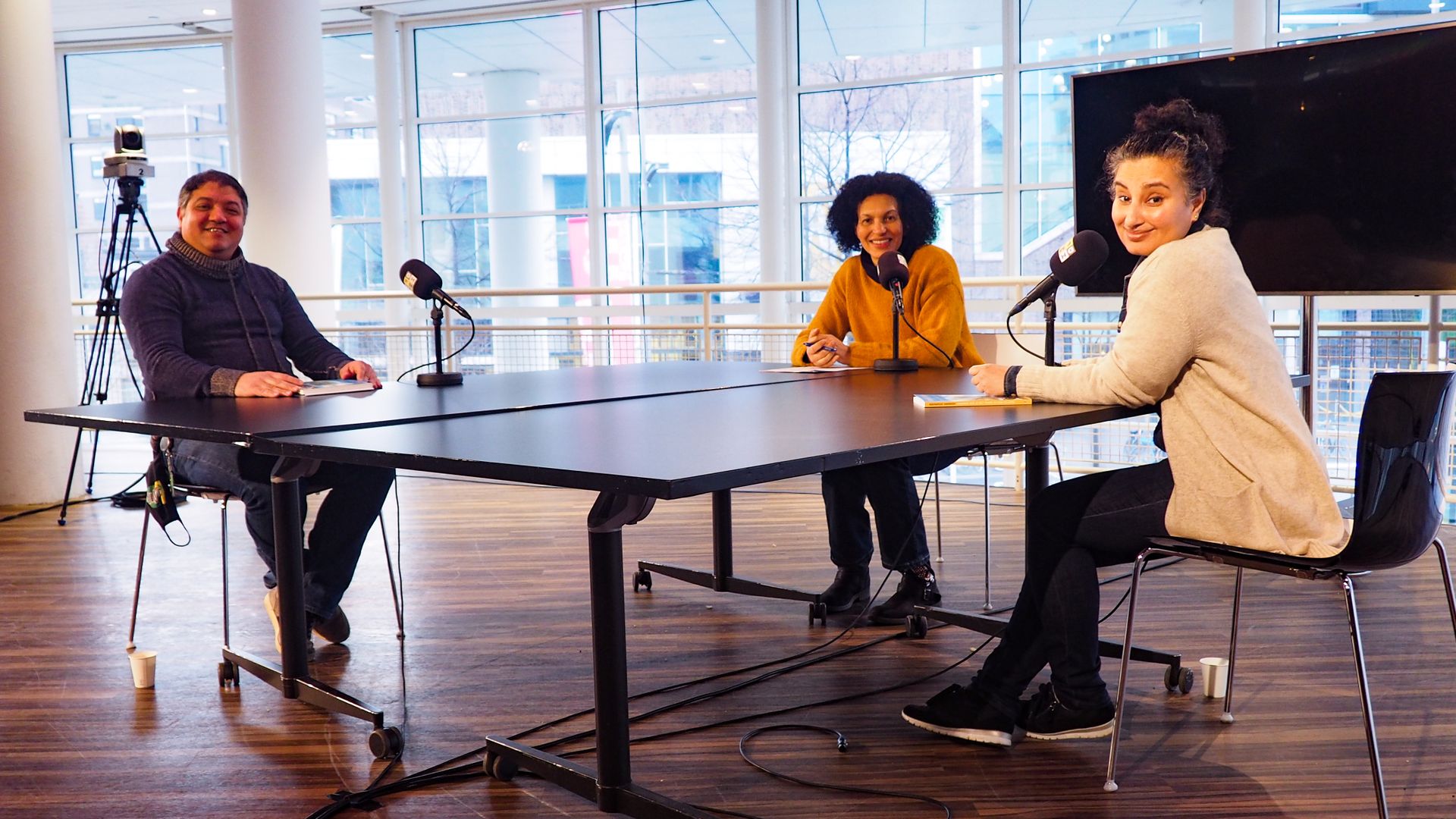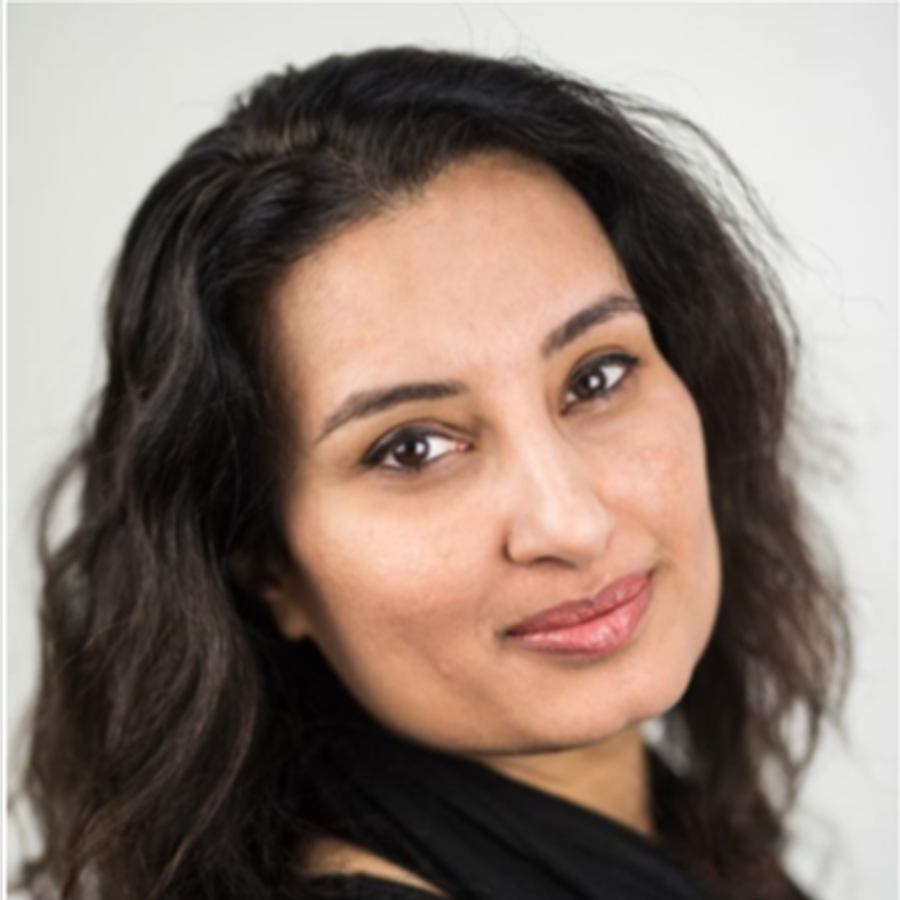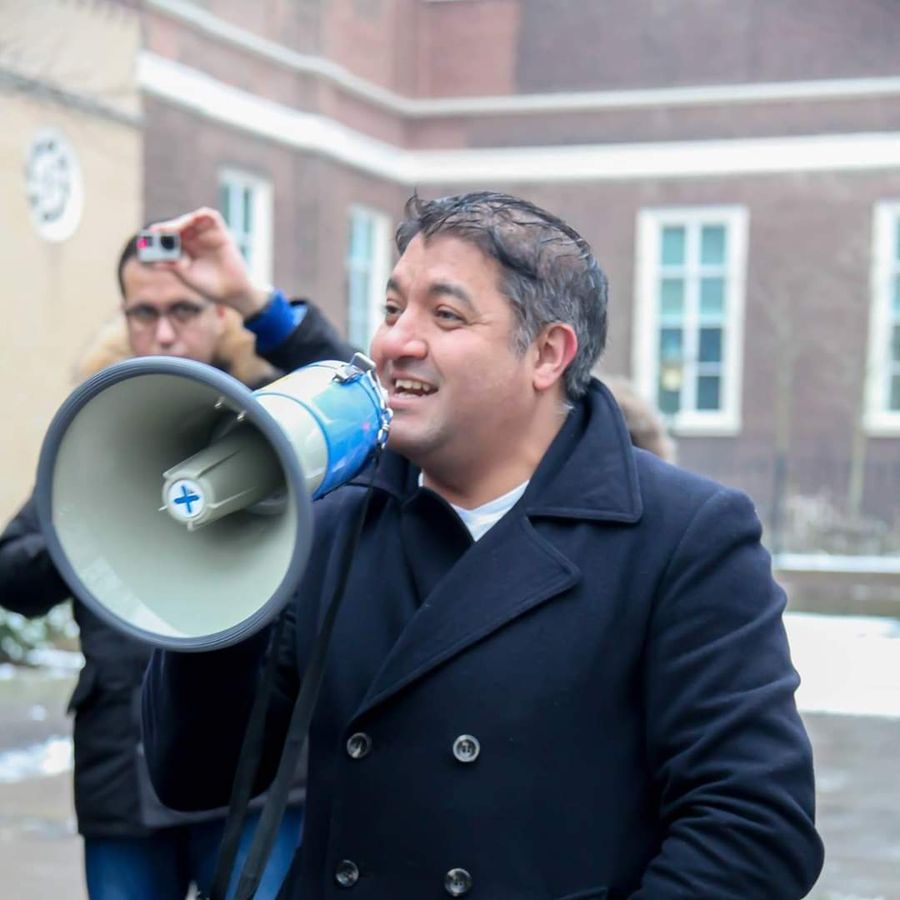
Amare Podcast #3
Inclusivity means… being liberal
March 2021, podcast
In the third podcast, Paula Udondek talks to Abdessamad Taheri of the Stichting Multicultureel Jongeren Geluid, and Rehana Ganga, programme maker at Het Nationale Theater. Together they consider the role of culture and what it means to be liberal in an open society.
In recent years, Ganga was responsible for polyphonic programming at Het Nationale Theater. “‘Who is my intended audience?’ and ‘how do I create a well-balanced programme?’: I don’t need to ask myself such questions, because it’s simply part of my nature,’’ is Rehana Ganga’s reply to the first question, whether she deliberately works according to target group policy. “Whose story are you presenting? Who is speaking, and who is the sender? I always want to have these questions answered. Besides that, I make what I enjoy and what has a certain urgency. My approach starts from the content side, not from the target group side.”
Het Nationale Theater no longer relies on a traditional hierarchy with programmers and artistic leaders. As Ganga explains, “Everyone can contribute his or her own input to the programme. We are seeing lots of American stories about racism and discrimination, also in the theatre. But there are so many different personal stories, and we would also like to see Black Joy, not just the struggles. You need to take this into account in order to keep attracting visitors.”
No aliens
Abdessamad Taheri works with Zuiderstrandtheater to connect youths from The Hague’s challenged neighbourhoods to culture. “I find it fascinating to hear people talking about the youths in the Schilderwijk neighbourhood – as if we’re talking about aliens. Obviously there are cultural differences, but for the most part they behave just like other Dutch youngsters. The biggest prejudice is that they are different! But they have the same dreams and fears and also simply want to make the best of their lives.”
Youngsters from this neighbourhood, and from similar neighbourhoods across the country, frequently feature in the 8 o’clock news. Taheri believes that we should try harder to understand what goes on inside them. “Imagine, you’re twenty years old and have spent a whole year basically at home. You’ve lost your side-job, you no longer go to school, and you can’t see your friends. You and your family live in a small apartment and your energy levels are sky-high,” Taheri says. “We are all challenged to think about that and to offer them alternatives. For example by inviting them, by stimulating them, and by letting them use the facilities provided to them by the city of The Hague.”
Diaspora culture
“If programme makers want to reach Moroccan folklore groups such as Rifians, Amazigh and Gnawa, then they need to expand their horizons,” says Taheri. “We need to invite each other in order to learn from each other’s cultures.” Amare needs to think big. “We also need to reach and welcome the people in Rotterdam, Amsterdam and Utrecht.” Ganga agrees with her fellow guest speaker: “Gnawa is a diaspora culture, just like the Marron culture. We need to show each other the similarities. We can also do so with Kaseko and Kawina, which are both Surinamese folk music traditions. The common denominator is dance, percussion, and dynamic interaction with the audience.”
Both the Gnawa festival and the Day of the Marrons are ways in which the organisers are attempting to reach young people and to preserve traditions. “Everyone lives in the Netherlands”, says Ganga. “But visiting a cultural festival, celebration or commemoration is an opportunity to reconnect with your cultural anchors, for yourself or for your children. It’s a way to rediscover yourself and to acquire a different kind of wisdom.”
Theatre as sanctuary
Do Taheri and Ganga think that you can see theatre as a kind of sanctuary? “That’s a tough question,” says Taheri. “I am included to say ‘yes’, but only on the condition that the freedom provided is absolute. A large proportion of The Hague’s Moroccan community is religious and has little affinity with theatre or music. You could think: we want to attract them as visitors, too. But what does that mean for the freedom to think and do as you like?” he wonders. “If they want to restrict other people’s freedom on account of their religious rules, then I have a problem with that. But the sanctuary does need to be open to change, which means being open to criticism, creativity and multi-truths.” Taheri personally has the ability to suspend his own preconceptions about culture, for instance in order to celebrate the Chinese New Year. “I just want to enjoy that, intensely. I watch and listen to what the other wants to share with me. They are the culture bearers, in this case.”
Ganga agrees that the theatre should be a sanctuary. “You have the black box of the theatre, and within that box you should create a safe where people can think together. The challenge is especially how visitors engage each other in conversation in the lobby, after leaving the auditorium.” Taheri concurs. “The discussions after a performance can be more special than the actual performance. The theatre should especially facilitate that dialogue.”
“Right now, everything is so turned inward that there is no interaction,” says Ganga. “When this lockdown is over, we need to put all our efforts into facilitating that interaction.” Facilitate, facilitate, facilitate! “Major theatre venues really have a responsibility in bringing together different social classes.” Ganga praises the call by Stichting Multicultureel Jongeren Geluid to create a countermovement with the Gnawa Festival. “Together we wanted to create a programme of music and dance, similar to what their ancestors experienced, with the unique sensation of ecstasy that Gnawa evokes. It is the theatre’s task, then, to make every effort to create a safe environment where people can congregate in large numbers.”
Sambal
“Some people like to lose themselves, others like to remain in control. I often compare theatre to sambal,” says Taheri. “Some people add sambal to their food by default, and then one individual can have more of it than another. That’s how it is with art and theatre, too. One person is gingerly testing the water, the other is eager to dive in at the deep end. I hope that Amare will stimulate a lot of curiosity. Most of the theatres in the Netherlands are not at all elitist. Everyone can feel welcome and comfortable. I am very hopeful regarding Amare, when I look at the steps we are taking to reach new target groups and to satisfy their expectations.”
About the guests



